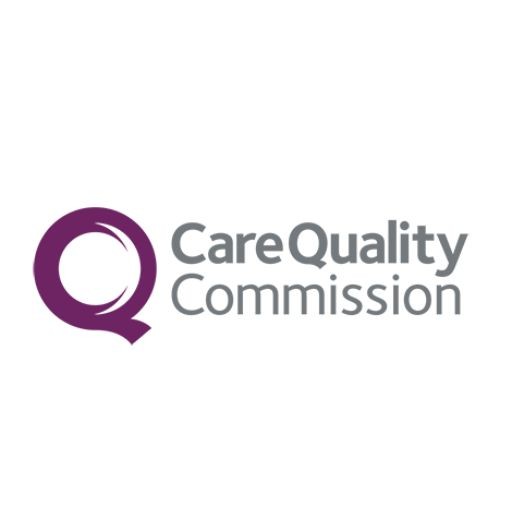Imagine a world where there are no rules or regulation in healthcare. No standards of care. No one to hold healthcare professionals accountable. Wouldn’t it be a very chaotic world, where patients would be at risk of harm. Well, it turns out you don’t have to go that far back in history to get fairly close to this.
This blog post will explain the roles of the three healthcare regulating bodies, with particular regard to how they inspect and regulate practice nurses, community pharmacists, and primary care pharmacists.
Remember the 90s?
In 1997, a comprehensive national policy addressing the safety and quality of healthcare was absent. The “The new NHS, modern, dependable” White Paper (1997) acknowledged the NHS’s varying care quality and slow response to significant lapses, such as the Bristol Royal Infirmary case. The Health Act 1999 birthed the Commission for Healthcare Improvement (CHI) to guide NHS providers in clinical governance.

In 2003, the Healthcare Commission emerged, unifying the functions of CHI, the National Standards Commission, and NHS efficiency assessments by the Audit Commission. It evaluated NHS providers against national standards, identifying poor performance and suggesting corrective measures. The Commission reported annually to parliament on NHS service status. With more autonomy, it directly answered to parliament and its commissioners were appointed independently.
Efforts to streamline regulatory bodies led to the formation of the CQC in England in 2009, combining the Healthcare Commission, the Commission for Social Care Inspection, and the Mental Health Act Commission. This move aimed to enhance regulatory efficiency and effectiveness, encapsulating the evolution of healthcare oversight. This was followed by the formation of the the Care Inspectorate in Scotland (2011) and the Healthcare Inspectorate Wales (2013).
These three main bodies regulate healthcare in the UK, by setting standards of care and inspecting healthcare providers to make sure they are meeting those standards.
The Care Quality Commission (CQC)
CQC serves as the independent regulator of health and adult social care in England. They ensure the delivery of safe, effective, compassionate, and high-quality care within these services while actively promoting improvements. CQC’s responsibilities encompass monitoring, inspecting, and regulating these services, with a commitment to transparency through the publication of their findings. In instances of substandard care, CQC exercises its authority.
Their approach to regulating care services comprises several key components:
- Registering individuals or entities seeking to provide services.
- Utilising data, evidence, and information throughout their operations.
- Incorporating feedback from stakeholders to inform their judgments.
- Conducting inspections conducted by expert professionals.
- Disseminating information on their assessments, often accompanied by ratings to aid individuals in their care choices.

If the CQC finds that a provider is not meeting the required standards of care, they will take action. This may involve issuing a warning, requiring the provider to take corrective action, or even suspending or closing the provider.
The Healthcare Inspectorate Wales (HIW)
Healthcare Inspectorate Wales functions as the independent inspectorate and regulator overseeing healthcare in Wales. Their responsibilities encompass the inspection of NHS services and the regulation of independent healthcare providers, all in accordance with a comprehensive set of standards, policies, guidance, and regulations aimed at identifying areas in need of enhancement.
Embedded within their strategic plan is a central objective of taking action when established standards are not met. In alignment with this priority and a commitment to increasing transparency in fulfilling their role of assuring the public about the quality and safety of healthcare services, Healthcare Inspectorate Wales has introduced a service of concern process for the NHS.
Whenever a ‘Service Requiring Significant Improvement’ is pinpointed, they disseminate this information on their website. They also provide the rationale behind this determination and make available any related inspection or review reports pertaining to a health board or trust.
The Care Inspectorate in Scotland (CI)
The Care Inspectorate operates as the regulatory authority overseeing care services in Scotland, ensuring they adhere to the prescribed standards. Collaborating with service providers, the Care Inspectorate strives to enhance service quality, ensuring the delivery of safe and high-quality care tailored to individuals’ needs.
Through joint inspections conducted in partnership with other regulatory bodies, the Care Inspectorate assesses the effectiveness of various organisations in local communities, particularly in supporting adults and children. This collaborative effort contributes to upholding high standards in social care services, including criminal justice social work.
Furthermore, the Care Inspectorate is committed to transparency by publishing inspection reports for every care service in Scotland. When substandard care is identified, appropriate actions are taken. This may involve making improvement recommendations, issuing requirements for change, and verifying their implementation. In cases where a care service fails to improve, the Care Inspectorate retains the authority to employ enforcement measures, including the ultimate option of closing the service, subject to the decision of a sheriff.
Differences
The primary distinction in the way that the CI in Scotland and the CQC and HIW in England and Wales assess care services lies in their evaluation approaches. The CI offers a quality framework designed for self-assessment, encouraging care agencies to independently evaluate their standards of care. In contrast, historically, CQC and HIW have been responsible for conducting direct inspections, though there may be shifts in this approach due to evolving regulations.
The introduction of self-assessment by the Care Inspectorate serves as a catalyst for care agencies to consistently appraise their own care standards. This practice aims to promote ongoing improvement efforts and ensure that their care aligns with the quality framework established by the Care Inspectorate.
Is this the same for Pharmacy Services?

The General Pharmaceutical Council (GPhC) serves as the regulatory authority for pharmacy professionals and establishments in the UK. Its primary responsibilities revolve around safeguarding the public and fostering advancements in the pharmacy profession. These responsibilities are fulfilled through a range of actions, which include:
- Maintaining a comprehensive register of active pharmacy professionals and premises.
- Conducting inspections of pharmacy premises to ensure compliance with established standards.
- Establishing practice standards and actively overseeing their adherence within the profession.
- Providing practical guidance and support as needed to enhance professional practice.
- Advocating for and promoting the principles of professionalism within the field.
- Addressing and managing concerns raised about registered individuals.
- Utilising enforcement powers when deemed necessary to uphold regulatory standards and protect public welfare.
The GPhC and the other regulatory bodies (CQC, HIE, and the CI) work together to regulate pharmacy in their respective regions aiming to cooperate openly and transparently and address overlaps and gaps in the regulatory frameworks, and thus improving patient safety.
Conclusion
The three healthcare regulating bodies as well as the GPhC play an important role in ensuring that patients receive safe and high-quality care. They do this by setting standards of care, inspecting providers, and taking action against providers who are not meeting the standards.
If you are a practice nurse, community pharmacist, or primary care pharmacist, or a healthcare support worker, it is important to be aware of the regulations that apply to you. You can find more information about the regulations on the websites of the CQC, the Care Inspectorate, and the HIW.




